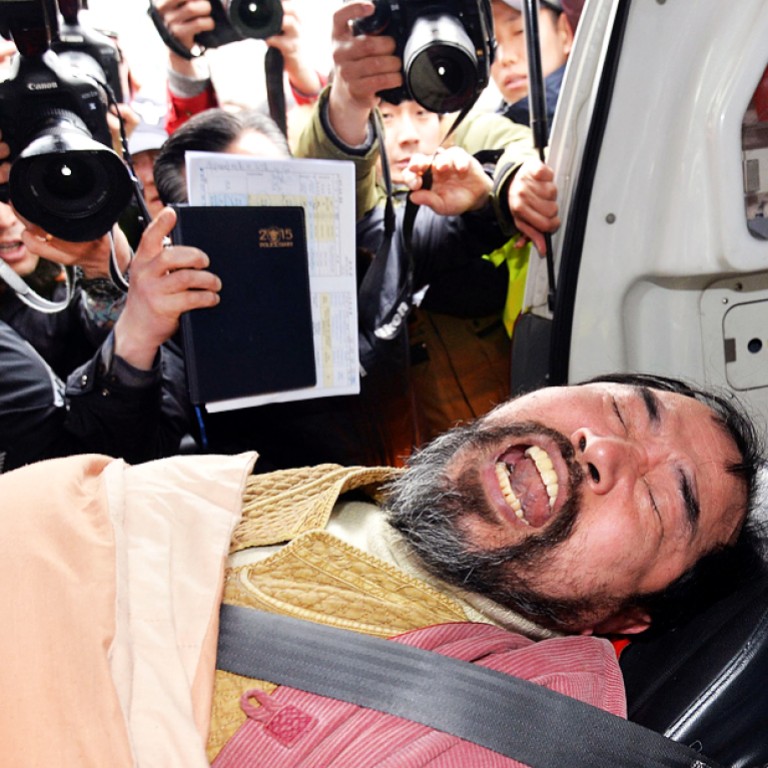
Update | US envoy's knife attacker charged with attempted murder, probed for links to North Korea
South Korean police has charged the man behind a shocking knife attack on the US ambassador with attempted murder, while investigating his possible links with North Korea.
South Korean police yesterday charged the man behind a shocking knife attack on the US ambassador with attempted murder, while investigating his possible links with North Korea.
Kim Ki-Jong, 55, also faces a separate charge of violence against a foreign envoy after slashing Mark Lippert with a paring knife.
Assailant Kim said he was protesting against annual US-South Korean military exercises that began this week.
Lippert needed 80 stitches and two and a half hours of surgery after his face was slashed at a forum discussing Korean unification in the capital, Seoul, on Thursday.
Hospital officials said today that a well-wishing South Korean man tried to offer dog meat to injured Lippert to speed up his recovery. South Koreans commonly offer dog meat to patients recovering from surgery based on old beliefs that it helps heal wounds.
An official at the Seoul hospital where Lippert - who was regularly seen walking his basset hound Grigsby before the attack - was being treated said the elderly man arrived pm Friday morning with a package that he said was dog meat and seaweed soup. The hospital rejected the food.
The profile painted of Kim is that of a lone assailant with strong nationalist views who saw the United States as one of the main obstacles to the reunification of the divided Korean peninsula.
But investigators have also established that Kim made seven visits to North Korea between 1999 and 2007.
Police raided his home and office early on Friday, looking for evidence of whether he also broke a state security law that bans supporting North Korea.
“We are investigating whether there is any connection between the suspect’s visits to North Korea and the crime committed against the US ambassador,” Yoon Myeong-seong, chief of police in Seoul’s central Jongno district, told reporters.
Yoon later said police had found “treasonous” books at Kim’s home, and were particularly interested in items “suspected of being pro-North Korea in nature,” without providing further details.
Lippert’s case is being handled by a special investigation team comprised of more than 100 prosecutors and police officers, and led by the anti-terrorism bureau of the Seoul Central District Prosecutors’ Office.
Most South Koreans have never visited the secretive North. The two states technically remain at war under a truce that ended the 1950-53 Korea war, and a heavily armed border divides the peninsula.
As he was moved from the police station to court on Friday, Kim was asked if he had acted on the orders of North Korea. “No, nothing like that,” he replied, saying the idea was “outrageous” and that he had never been to the North.
According to South Korea’s Unification Ministry, Kim planted trees near the North Korean city of Kaesong, near the border, during his visits there. The ministry said it had authorised his visit requests at the time.
Kim also faces charges for assaulting a foreign envoy and obstructing business operations.
In 2010, Kim tried to attack the Japanese ambassador to South Korea by throwing a piece of concrete and was given a suspended jail term, according to police.

Kim was a member of the pro-unification group that hosted the Thursday forum.
North Korean state media has said the attack against Lippert was “deserved punishment” for the military drills, calling the assault “the knife of justice”. South Korea’s Unification Ministry condemned the statement as “senseless”.
The South Korean government ordered increased security for diplomatic missions, including the US embassy, and police said they were providing protection for Lippert.
Lippert was accompanied by a bodyguard when the attack took place on Thursday. Police were also present, although not at the request of the US embassy or organisers.
The United States is South Korea’s closest ally and maintains a military presence that includes 28,500 personnel. That has drawn protest and criticism from some in South Korea in the past but public opposition has eased in recent years.
Lippert is recovering in a Seoul hospital and has said he is in “good spirits”.
Doctors at Yonsei University’s Severance Hospital said Lippert was likely to remain there until early next week, when they planned to remove his stitches. A cut to his left hand had damaged the nerves of his little finger that could take six months to correct, they said.
Lippert underwent surgery on Thursday for an 11cm gash on the right side of his face and a puncture wound on his left wrist that caused nerve damage, which was repaired.
With additional reporting from the Associated Press

